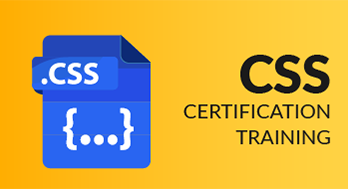In the modern workforce, professional certifications have become invaluable tools for individuals seeking to advance their careers. These credentials offer tangible evidence of a person’s expertise in a specific field and can significantly boost one’s job prospects and earning potential. New York State, with its diverse and thriving job market, offers a plethora of professional certification options across various industries. However, navigating the certification application process can be a complex and overwhelming task. In this comprehensive guide, we will walk you through the essential steps of applying for professional certification in New York State, helping you understand the requirements and procedures to ensure a smooth and successful application process.
What is Professional Certification?
Professional certification is a formal recognition of an individual’s knowledge, skills, and expertise in a particular field or occupation. It signifies that the certificate holder has met certain educational and experience requirements and has successfully passed a standardized examination. These certifications are issued by professional organizations, governmental agencies, or certifying bodies and are often required or preferred by employers to ensure that their employees possess the necessary qualifications to perform specific job tasks.
Professional certifications are available in a wide range of industries, from healthcare and education to technology and finance. They serve to distinguish professionals in their respective fields, providing them with a competitive edge in the job market. In New York State, professional certifications are offered in various sectors, including healthcare, education, law, finance, and more.
Why Pursue Professional Certification in New York State?
New York State is a hub for a multitude of industries, offering diverse and lucrative career opportunities. Whether you are a recent graduate, an experienced professional, or someone looking to switch careers, obtaining a professional certification can open doors to an array of benefits:
1. Enhanced Career Prospects
Professional certifications are widely recognized and respected by employers. Having a certification on your resume can make you a more attractive candidate, increasing your chances of landing your dream job.
2. Increased Earning Potential
Certified professionals often earn higher salaries than their non-certified counterparts. In many cases, employers are willing to pay a premium for specialized skills and expertise.
3. Personal Growth and Knowledge
Pursuing a professional certification is an opportunity to deepen your knowledge and skills in your chosen field, making you a more proficient and confident professional.
4. Job Security
In some industries, professional certifications are required to practice legally. Having the necessary certifications ensures you are in compliance with state regulations and can continue your career without interruption.
5. Networking Opportunities
Professional certification often involves joining a community of certified professionals. This can provide valuable networking opportunities and access to exclusive resources and events.
Types of Professional Certifications in New York State
Before diving into the application process, it’s crucial to understand the different types of professional certifications available in New York State. These certifications can be broadly categorized into the following sectors:
1. Healthcare
Healthcare professionals in New York State can obtain certifications in various fields, including nursing, medical assisting, dental hygiene, and radiologic technology. These certifications are regulated by the New York State Department of Health.
2. Education
Educators can seek certification in areas such as teaching, school administration, and counseling. The New York State Education Department is responsible for overseeing the certification of educators in the state.
3. Law and Legal Professions
For individuals interested in the legal field, New York State offers certifications for paralegals, legal assistants, and court reporters.
4. Financial Services
Finance professionals can pursue certifications such as the Certified Public Accountant (CPA) or Chartered Financial Analyst (CFA) through organizations like the New York State Board for Public Accountancy and the CFA Institute.
5. Information Technology
The IT industry provides a wide range of certifications, including CompTIA, Cisco, Microsoft, and more, for individuals seeking to demonstrate their expertise in various IT specialties.
6. Construction and Trades
Construction and trade professionals can earn certifications in fields like plumbing, electrical work, and building inspection.
Steps to Applying for Professional Certification in New York State
The process of applying for professional certification in New York State can vary depending on the industry and specific certification you are pursuing. However, the following steps provide a general overview of the application process:
1. Identify Your Chosen Certification
Start by researching and identifying the specific professional certification you wish to pursue. This may involve reviewing the requirements, job prospects, and potential benefits of the certification within your chosen industry.
2. Meet the Eligibility Requirements
Each certification has its own set of eligibility requirements, which may include education, work experience, and specific coursework. Ensure that you meet all these requirements before proceeding with your application.
3. Select an Accredited Program (If Required)
In some cases, you may need to complete a specific educational program from an accredited institution to qualify for certification. Be sure to choose a program recognized by the certifying body.
4. Prepare for the Exam
Many certifications require candidates to pass a standardized examination. Dedicate time to study and prepare for the exam thoroughly. There are often resources available, such as study guides and practice exams, to help you succeed.
5. Complete the Application
Obtain the official application for your chosen certification from the certifying body or relevant government agency. This application typically includes personal information, educational history, and work experience details.
6. Pay the Application Fee
Most certification applications come with a fee. Be prepared to pay this fee, which covers the cost of processing your application and, in some cases, the exam.
7. Submit Supporting Documents
You may be required to submit various supporting documents, such as transcripts, letters of recommendation, and proof of work experience. Make sure all documents are accurately prepared and submitted as requested.
8. Schedule and Take the Exam
If your certification requires an examination, you will need to schedule and take the test. Be sure to review any test-taking guidelines provided by the certifying body.
9. Wait for Notification
After submitting your application and completing any required exams, you will need to wait for the certifying body to review your application. This can take some time, so be patient.
10. Receive Your Certification
Once your application is approved and you have met all the requirements, you will receive your professional certification. This certificate demonstrates your expertise and is an important asset for your career.
11. Maintain Your Certification
Many certifications require ongoing education and professional development to maintain your status. Stay informed about the renewal requirements and ensure you fulfill them to keep your certification current.
Also Read: Retail and Omnichannel Management Professional Certification
Tips for a Successful Application
Applying for professional certification can be a challenging process. To increase your chances of success, consider the following tips:
1. Start Early: Begin your certification journey well in advance of any application deadlines. This gives you ample time to prepare, complete any necessary coursework, and gather required documents.
2. Seek Guidance: If you’re unsure about the application process or eligibility requirements, reach out to the certifying body or agency. They can provide valuable guidance and answer any questions you may have.
3. Study Effectively: If an exam is part of the certification process, create a study plan and use reputable study materials. Consider joining study groups or seeking a tutor to help you prepare.
4. Proofread Your Application: Ensure that all the information you provide on your application is accurate and well-presented. Errors or omissions can lead to delays or denials.
5. Stay Organized: Keep all documents, emails, and communication related to your certification application in an organized folder. This will help you track progress and reference important information.
6. Budget for Costs: Professional certifications often come with fees for applications, exams, and maintenance. Include these costs in your budget and plan accordingly.
Common Challenges and Solutions
Applying for professional certification can sometimes present challenges, but with perseverance and the right approach, you can overcome them. Here are some common challenges and suggested solutions:
1. Lack of Eligibility: If you don’t meet the eligibility requirements for your chosen certification, consider pursuing additional education or work experience to qualify.
2. Exam Anxiety: Many applicants experience anxiety when taking certification exams. To combat this, practice relaxation techniques, take practice exams, and ensure you are well-prepared.
3. Application Delays: Delays can occur due to various reasons, including missing documents or processing backlogs. To prevent delays, double-check your application for completeness and submit it well before the deadline.
4. Maintaining Certification: Keeping your certification up to date may require continuing education or professional development. Stay informed about the requirements and plan accordingly.
5. Rejection: In some cases, applications may be rejected. If this happens, review the feedback provided and address the issues, then reapply when you are ready.
Conclusion
Pursuing professional certification in New York State can be a rewarding and fulfilling journey that leads to enhanced career prospects, increased earning potential, and personal growth. However, it requires careful planning, dedication, and a clear understanding of the certification process.
By identifying your chosen certification, meeting eligibility requirements, and following the application steps outlined in this guide, you can embark on a successful path to certification. Remember to stay organized, budget for associated costs, and seek guidance when needed.
Ultimately, professional certification is an investment in your future, offering you the opportunity to excel in your chosen field and make a significant impact on your career and the industries in which you work. So, take the first step today, and embark on your journey to professional certification in New York State.




